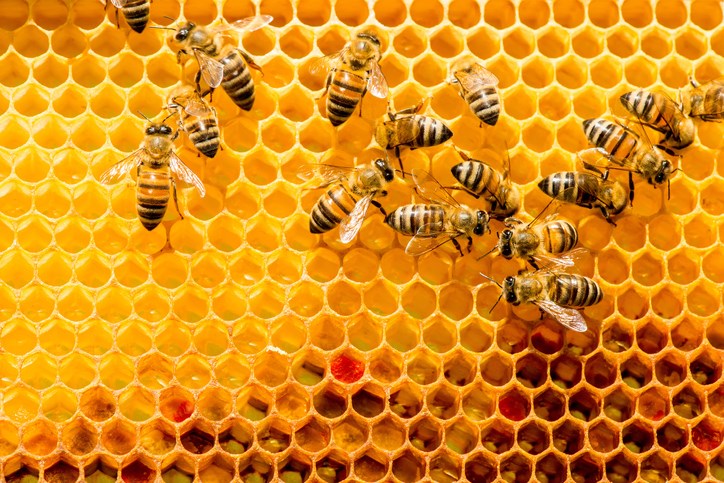City hall plans to develop a beekeeping policy that educates residents and apiculturists about the activity and creates voluntary best management guidelines to regulate the industry at the municipal level.
Such a strategy should alleviate safety concerns that the public may have while providing safe beekeeping practices that complement provincial standards, a council report explained.
There are roughly 1,160 registered beekeepers in the province, with about nine beekeepers here in Moose Jaw. The report indicated the province has not received many complaints about existing hives in the community since most co-exist quietly with human activities.
Since the provincial government already has regulations that govern this industry — for example, beekeepers must register with the province — additional regulations would be unnecessary, the report continued. The province would still be responsible for handling enforcement with complaints about honeybees.
The policy that the municipality wants to develop would see beekeepers register with the city and adopt best practices such as keeping hives at a certain height above ground, providing a source of water, and installing a barrier to block the bees’ flight path. Furthermore, beekeepers would be limited to two or four hives based on their yard’s size.
Yens Pederson, a long-time beekeeper and Regina NDP MLA, spoke to city council during its Sept. 21 regular meeting about the proposed urban beekeeping policy city administration had crafted.
Saskatchewan has over 300 native bee species, with most of them solitary and not living in hives or nests, he explained. There are no native honeybee species in the province or even North America; such species have been imported from Europe and Asia.
“Beekeeping is like gardening or any agricultural pastime. What works in one part of the world might not work here, but people don’t understand that,” Pederson added.
Pederson clarified misinformation about beekeeping and the industry. For example, honeybees can be disadvantageous since they compete for resources with native bee species and contribute diseases; synthetic chemicals can be used around bees; and pesticides are not the main cause for honeybees being wiped out.
City council’s main objectives should be to manage the people who want to keep bees in the city and prevent honeybees from becoming a nuisance to property owners, he said. While limiting the number of hives per property is a good idea, council should remember that honeybees can be a problem for anyone anywhere since they can fly up to five kilometres.
“We all instinctively have a fear of buzzing insects around our ears and faces,” said Pederson. “It is because of the pointy end on them. It hurts (to be stung) and bees can become defensive if they’re not managed properly.”
The policy should focus on managing swarms, managing water supply, managing bees’ defensiveness, and managing diseases, he remarked, before making several more suggestions on improving the policy.
Michelle Sanson, director of planning and development, told city council that she was open to all the suggestions Pederson made and would consider putting them all in the policy.
Council does not need to adopt this policy since the province already regulates beekeeping and has an act in place, said Coun. Brian Swanson, who preferred to see a smaller government footprint and not an increase in bureaucracy at city hall.
A policy is needed since councillors are the ones who hear about these issues first, while there have been problems in a neighbourhood where a resident keeps bees, said Coun. Crystal Froese. She wanted to see all beekeepers register and present their provincial certificates to show they understand how to keep bees, that they can safeguard their neighbours, and so city hall knows how many actual hives the city has.
Council then voted 6-1 to table the policy until city administration could incorporate Pederson’s suggestions. Swanson was opposed.
The next regular council meeting is Monday, Oct. 5.




